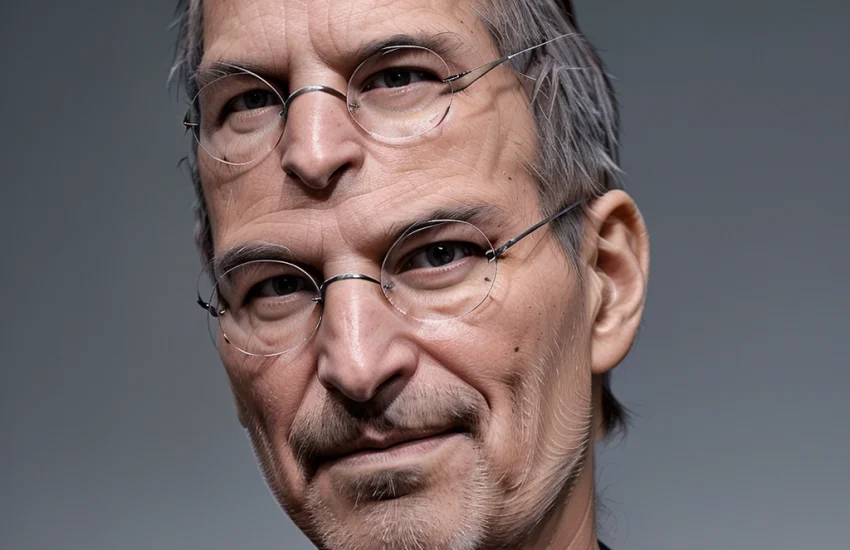Steve Jobs’ influence on technology, design, and business innovation continues to resonate years after his passing. His statements provide insight into the mindset that revolutionized multiple industries and created one of the world’s most valuable companies. This analysis examines his most significant quotes and their enduring relevance to business and innovation.
Vision and Innovation
Perhaps Jobs’ most famous observation about innovation came from his perspective on customer needs: “People don’t know what they want until you show it to them. That’s why I never rely on market research. Our task is to read things that are not yet on the page.” This statement encapsulates his approach to product development and innovation, emphasizing the importance of vision over conventional market analysis.
His perspective on the relationship between art and technology remains particularly relevant: “Technology alone is not enough. It’s technology married with the liberal arts, married with the humanities, that yields the results that make our hearts sing.” This understanding helped create products that weren’t just technically sophisticated but emotionally resonant.
Design Philosophy
Jobs’ appreciation for simplicity in design became a cornerstone of Apple’s product philosophy: “Simple can be harder than complex. You have to work hard to get your thinking clean to make it simple. But it’s worth it in the end because once you get there, you can move mountains.” This principle continues to influence product design across industries.
His insight about the importance of integrated design was equally profound: “Design is not just what it looks like and feels like. Design is how it works.” This holistic approach to design thinking has become increasingly influential in product development methodology.
Leadership and Management
On building exceptional teams, Jobs observed: “The reason that Apple is able to create products like the iPad is because we’ve always tried to be at the intersection of technology and the liberal arts.” This perspective emphasized the importance of diverse skill sets in innovation.
Regarding corporate culture, he stated: “Innovation comes from people meeting up in the hallways or calling each other at 10:30 at night with a new idea, or because they realized something that shoots holes in how we’ve been thinking about a problem.” This insight highlights the importance of organizational culture in fostering innovation.
Personal Excellence
Jobs’ Stanford commencement address provided several enduring insights about personal development. His observation that “Your work is going to fill a large part of your life, and the only way to be truly satisfied is to do what you believe is great work” continues to inspire professionals across industries.
His perspective on mortality shaped his approach to decision-making: “Remembering that I’ll be dead soon is the most important tool I’ve ever encountered to help me make the big choices in life.” This stark reminder about life’s finite nature informed his sense of urgency and focus.
Product Development
Jobs’ approach to product development was captured in his statement: “You’ve got to start with the customer experience and work backwards to the technology.” This customer-centric approach has become increasingly influential in product design methodology.
His perspective on quality was uncompromising: “Be a yardstick of quality. Some people aren’t used to an environment where excellence is expected.” This standard continues to influence corporate quality standards.
Business Strategy
On competition, Jobs offered this insight: “Innovation has nothing to do with how many R&D dollars you have. When Apple came up with the Mac, IBM was spending at least 100 times more on R&D. It’s not about money. It’s about the people you have, how you’re led, and how much you get it.” This understanding of innovation’s true sources remains relevant.
Focus and Simplicity
Jobs emphasized the importance of focus: “People think focus means saying yes to the thing you’ve got to focus on. But that’s not what it means at all. It means saying no to the hundred other good ideas that there are. You have to pick carefully.” This principle of selective focus has influenced strategic thinking across industries.
Marketing and Communication
His approach to marketing was captured in this observation: “Marketing is about values. It’s a complicated and noisy world, and we’re not going to get a chance to get people to remember much about us. No company is. So we have to be really clear about what we want them to know about us.” This insight continues to shape brand communication strategies.
Legacy and Impact
Near the end of his life, Jobs reflected: “Being the richest man in the cemetery doesn’t matter to me. Going to bed at night saying we’ve done something wonderful… that’s what matters to me.” This perspective on meaning and achievement continues to inspire business leaders.
Conclusion
Steve Jobs’ quotes reveal a consistent philosophy emphasizing simplicity, excellence, and the integration of technology with human needs. His insights continue to influence business strategy, product design, and innovation methodology across industries.
The enduring relevance of his perspectives demonstrates how fundamental principles of innovation and design transcend specific technologies or market conditions. Jobs’ emphasis on vision, simplicity, and excellence continues to provide valuable guidance for current and future business leaders.
As technology continues to evolve, Jobs’ insights about the relationship between technology and human experience become increasingly relevant. His perspectives on innovation, design, and leadership continue to influence how organizations approach product development and strategic planning in the modern business environment.
